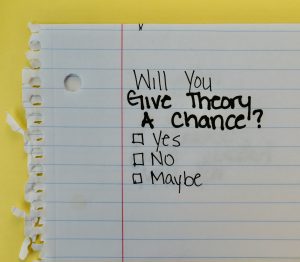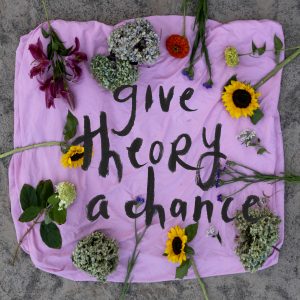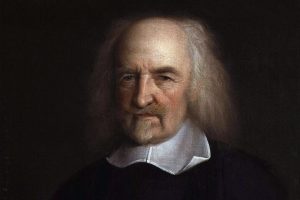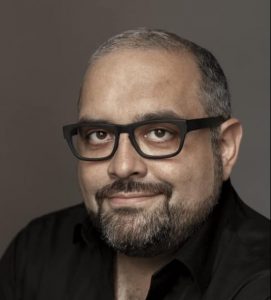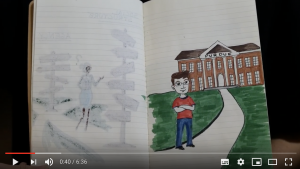- Affärsnyheter
- Alternativ hälsa
- Amerikansk fotboll
- Andlighet
- Animering och manga
- Astronomi
- Barn och familj
- Basket
- Berättelser för barn
- Böcker
- Buddhism
- Dagliga nyheter
- Dans och teater
- Design
- Djur
- Dokumentär
- Drama
- Efterprogram
- Entreprenörskap
- Fantasysporter
- Filmhistoria
- Filmintervjuer
- Filmrecensioner
- Filosofi
- Flyg
- Föräldraskap
- Fordon
- Fotboll
- Fritid
- Fysik
- Geovetenskap
- Golf
- Hälsa och motion
- Hantverk
- Hinduism
- Historia
- Hobbies
- Hockey
- Hus och trädgård
- Ideell
- Improvisering
- Investering
- Islam
- Judendom
- Karriär
- Kemi
- Komedi
- Komedifiktion
- Komediintervjuer
- Konst
- Kristendom
- Kurser
- Ledarskap
- Life Science
- Löpning
- Marknadsföring
- Mat
- Matematik
- Medicin
- Mental hälsa
- Mode och skönhet
- Motion
- Musik
- Musikhistoria
- Musikintervjuer
- Musikkommentarer
- Näringslära
- Näringsliv
- Natur
- Naturvetenskap
- Nyheter
- Nyhetskommentarer
- Personliga dagböcker
- Platser och resor
- Poddar
- Politik
- Relationer
- Religion
- Religion och spiritualitet
- Rugby
- Så gör man
- Sällskapsspel
- Samhälle och kultur
- Samhällsvetenskap
- Science fiction
- Sexualitet
- Simning
- Självhjälp
- Skönlitteratur
- Spel
- Sport
- Sportnyheter
- Språkkurs
- Stat och kommun
- Ståupp
- Tekniknyheter
- Teknologi
- Tennis
- TV och film
- TV-recensioner
- Underhållningsnyheter
- Utbildning
- Utbildning för barn
- Verkliga brott
- Vetenskap
- Vildmarken
- Visuell konst

Give Theory A Chance
A podcast devoted to the foundational ideas that inspire thought and action.
62 avsnitt • Längd: 35 min • Månadsvis
Om podden
A podcast devoted to the foundational ideas that inspire thought and action.
The podcast Give Theory A Chance is created by The Society Pages. The podcast and the artwork on this page are embedded on this page using the public podcast feed (RSS).
Avsnitt
Daniel Silver reads Georg Simmel
In this episode, Dr. Daniel Silver, Professor of Sociology at the University of Toronto Scarborough and author of Scenescapes: how qualities of place shape social life (2020), joins us to discuss and read from Georg Simmel’s Sociology: Inquiries into the Construction of Social Forms (first published in 1908).
Be sure to check out Dan’s co-authored essay on Simmel’s three concepts of form and his co-authored article tracing Simmel’s influence within American sociology since 1975.
Andrea S. Boyles reads Patricia Hill Collins
William Turner on W.E.B. Du Bois
In this episode, Jabez Turner interviews Dr. William Turner, Assistant Professor of African & African-American Studies at SUNY Brockport, about W.E.B. Du Bois. Dr. Turner reflects on the importance of Du Bois in his own intellectual development, discusses the marginalization of Du Bois within sociology, and explains how the rigor and depth of Du Bois’s scholarship continues to a valuable model across disciplines.
Christine Goding-Doty reads Aimé Césaire
Dr. Christine Goding-Doty, Assistant Professor in Digital Media in the department of Culture and Media at the New School, introduces us to Aimé Césaire and reads from his foundational essay “Discourse on Colonialism” (1950).
Follow along HERE.
-Kyle-
Amanda McMillan Lequieu on Yi-Fu Tuan
In this episode, we are joined by Dr. Amanda McMillan Lequieu, Associate Professor of Sociology at Drexel University and author of Who We Are Is Where We Are: Making home in the American Rust Belt (2024). Amanda returns to the podcast to discuss foundational humanistic geographer Yi-Fu Tuan and his influence on her own research and theorizing.
Daniel Silver reads Adam Smith
In this episode, Dr. Daniel Silver, Professor of Sociology at the University of Toronto Scarborough and author of Scenescapes: how qualities of place shape social life (2020), joins us to discuss Adam Smith’s An Inquiry into the Nature and Causes of the Wealth of Nations (1776).
Mary Peterson reads Iris Marion Young
In this episode, we are joined by Mary Peterson, PhD student in philosophy at the University of Hamburg.
Mary joins us for a guided reading of Iris Marion Young’s 1980 essay “Throwing like a Girl: A Phenomenology of Feminine Body Comportment Motility and Spatiality.”
Mary helps us understand Young’s contribution to understanding the embodied experience of women in a patriarchal society. We also briefly discuss Mary’s excellent essay “Philosophizing Like a Girl.”
As always, a pdf of the essay discussed is available here, along with a scan of Mary’s handwritten chapter outline.
Jacqui Frost on Max Weber
In this episode, we are joined by Dr. Jacqui Frost, Assistant Professor of Sociology at Purdue University and Faculty Research Fellow in the Religion and Public Life Program at Rice University and a Center Affiliate in the Center for the Study of Religion and Society at University of Notre Dame.
In our conversation, Jacqui discusses her early encounters with Max Weber as an undergraduate at the University of Wyoming and why she did not initially connect with his ideas. She then helps us understand the value of drawing on Weber’s work and testing his predictions through her research on ritual and community in nonreligious congregations and her collaboration with Dr. Penny Edgell exploring how people discuss contemporary social controversies.
-Kyle-
Hannah McCann on Judith Butler
In this episode, we are joined by Dr. Hannah McCann, Senior Lecturer in Cultural Studies at the University of Melbourne, author of Queering Femininity: Sexuality, Feminism and the Politics of Presentation, and co-author of Queer Theory Now (which we discussed on an earlier episode of the podcast). In our conversation, Hannah introduces us to the value and joys of reading Judith Butler and discusses why Butler’s theorizing of sex and gender has been demonized by and come under attack from the political right. Hannah helps us better understand Butler’s ideas through reflecting on her own intellectual development and current project on queer hair salons. Hannah also offers us a brief preview of Judith Butler’s recently published Whose Afraid of Gender.
 hann
hann
Ugo Corte on Gary Alan Fine
In this episode we are joined by Ugo Corte, Professor of Sociology at the University of Stavanger, author of Dangerous Fun: The Social Lives of Big Wave Surfers (2022 University of Chicago Press), and winner of the 2023 Charles Horton Cooley Award from the Society for the Study of Symbolic Interaction.Ugo introduces us to the work of Gary Alan Fine and discusses his importance as a scholar, theorist, and methodologist. Ugo also discusses the influence of Fine, as well as a plethora of other theorists, on his own research on risky group activities.
*Ugo also mentions the work of previous GTaC guests Seth Abrutyn and Jonathan Wynn!
Kelly Underman reads Lauren Berlant
In this episode, Dr. Kelly Underman, Associate Professor in Sociology at Drexel University in Philadelphia, Pennsylvania and author of Feeling Medicine: How the Pelvic Exam Shapes Medical Training (2020), joins us to read from the first chapter of Lauren Berlant’s Cruel Optimism (2011).
Follow along HERE.
-Kyle-
Kelly Underman on Lauren Berlant
In this episode, we are joined by Dr. Kelly Underman, Associate Professor in Sociology at Drexel University in Philadelphia, Pennsylvania and author of Feeling Medicine: How the Pelvic Exam Shapes Medical Training (2020).
In our conversation, Kelly introduces us to the work of Lauren Berlant, reflects on her experience finding their work as a graduate student interested in affect, and the value of theory that names a particular experience (or vibe) that we previously did not have language for. Kelly also helps us better understand Berlant’s concept of ‘cruel optimism’ through discussing her previous work on gynecological teaching programs, her current research on burnout among medical doctors, and the shared social experience of living through COVID.
*Make sure to join us in the companion episode where Kelly guides us through Chapter 1 of Berlant’s Cruel Optimism (2011).
-Kyle-
Amanda McMillan Lequieu reads Kai Erikson
In this episode, we are joined by Dr. Amanda McMillan Lequieu, Assistant Professor in Sociology at Drexel University in Philadelphia, Pennsylvania and author of the forthcoming book Who we are is where we are: Making home in the American Rust Belt. Amanda joins us to discuss Kai Erikson’s Everything in its Path: Destruction of Community in the Buffalo Creek Flood (1976). Amanda introduces us to Erikson’s subtle approach to theorizing which he employs to better understand the Appalachian community’s response to environmental disaster. As she guides us through excerpts from the book, Amanda helps us understand Erikson’s concepts of community and communality, as well as the importance of time, space, and place to his theorizing. We conclude with a short discussion of potential critiques of Erikson’s classic work.
As always, a pdf of the two chapters discussed (‘Collective trauma: the loss of communality’ and the ‘Conclusion’) are available here.
Andrew McCumber reads Raymond Williams
In this episode, Dr. Andrew McCumber joins us to discuss Raymond Williams’s ‘Ideas of Nature’ from Problems in Materialism and Culture (1980). Andy introduces us to Willams’s overview of our changing understanding of nature and the natural and why it matters. Andy also discusses the influence of the essay on his dissertation research and current book project titled “The Pest We All Live With: The Cultural Meanings of the Life and Death of Rats.”
A pdf of this essay is available here.
Christopher Matthews on Nick Crossley
In this episode we are joined by Dr. Christopher R. Matthews; a social scientist and epistemologist who specializes in the use of immersive research to understand ideas, people and society. Chris is the author of Doing Immersive Research Vol.1: Using Social Science to Understand the Human World and runs an impressive website with hours of content on methods, theory, and navigating academia. Chris introduces us to the work of Nick Crossley and reflects on the value of Crossley’s comprehensive synthesis of social theory centering the body. Chris also discusses his own approach to theory and his goals in doing research.
Christopher Matthews reads Nick Crossley
In this companion episode, Dr. Christopher R. Matthews walks us through a series of excerpts from Nick Crossley’s Intersubjectivity: The Fabric of Social Becoming (1996). Chris also provides us with screenshots of his own copy of the book so we can follow along with the text and see Chris’s approach to reading theory.
Matthew Clair on W. E. B. Du Bois
In this episode we are joined by Dr. Matthew Clair, an Assistant Professor of Sociology & Law at Stanford University. In our conversation, Matt introduces us to the work of W. E. B. Du Bois, discusses how Du Bois is one of the rare scholars who transcends sociology and the academy, and helps us understand how Du Bois’s approach to theory, relationship to sociology, and understanding of politics shifted across his career. Matt also introduces us to his own research on the experience of criminal defendants to illustrate the value of a Du Boisian approach.
Michael DeLand reads Herbert Blumer
In this episode, Dr. Michael DeLand, an Assistant Professor of Sociology & Criminology at Gonzaga University, joins us to read from Herbert Blumer’s article ‘Sociological Implications of the Thought of George Herbert Mead’ (1966).
Mike walks us through Blumer’s reading of Mead and discusses how the article offers a starting point to understand social construction and symbolic interaction.
Follow along HERE.
-Kyle-
Michael DeLand on Herbert Blumer
In this episode we are joined by Dr. Michael DeLand, an Assistant Professor of Sociology & Criminology at Gonzaga University. In our conversation, Mike introduces us to the work of Herbert Blumer and discusses how Blumer’s process-oriented theorizing of interaction and sense-making provide methodological inspiration and how Blumer’s critiques of more distant and structural ways of studying social life provided confidence in building his own research agenda. Mike also introduces his research on pickup basketball to illustrate a Blumer-inspired approach and the value of character-driven ethnographies.
Jennifer McClearen on Herman Gray
In this episode we are joined by Dr. Jennifer McClearen, Assistant Professor of Sports, Media, and Culture in the Department of Radio-Television-Film at the University of Texas at Austin and author of the recently published Fighting Visibility: Sports Media and Female Athletes in the UFC. Jennifer introduces us to the work of Herman Gray and illustrates how his writings on the politics of representation transcend disciplinary boundaries through discussing Gray’s influence on her own study of mixed martial arts and marketing of women fighters.
Elizaveta Lepikhova on Peter Berger and Thomas Luckmann
In this episode Elizaveta Lepikhova, a second year MA student, teaching assistant, and supplemental instructor of sociology at University of Wisconsin-Milwaukee, discusses the work of Peter Berger and Thomas Luckmann. Elizaveta discusses their contributions to the sociology of everyday life, introduces her schema of explaining their ideas (see here), and reflects on first reading the work in Russian. She also talks about Berger and Luckmann’s influence on her own research on social time.
Jonathan Wynn on Erving Goffman
In this episode we are joined by Jonathan Wynn, Associate Professor and Department Chair of Sociology at the University of Massachusetts Amherst and author of Music/City: American Festivals and Placemaking in Austin, Nashville, and Amherst. Jon introduces us to Erving Goffman, reflects on Goffman’s intellectual location and influence within the discipline, and discusses how his own work has built on Goffman’s call for a sociology of occasions.
*I also recommend checking out Jon’s frequent posts on the Everyday Sociology blog.
Fabio Rojas on Theory for the Working Sociologist
In this episode, we are joined by Fabio Rojas, professor of sociology at Indiana University Bloomington and author of Theory for the Working Sociologist (2017). Fabio introduces his approach to teaching sociological theory, discusses the four theoretical moves made within the discipline, and argues against the common practice of having students engage in lengthy readings of original texts and the disciplinary tendency to turn our favorite theorists into superheroes.
Alex Channon on Stephen Lyng and Edgework
In this episode we are joined by Dr Alex Channon, Senior Lecturer in the School of Sport and Service Management at the University of Brighton. Alex introduces us to Stephen Lyng and his theorization of edgework. Alex illustrates the value of the concept through discussing his research on sport, violence, and interactions in the martial arts gym and how the concept helped inspire his Love Fighting Hate Violence project with Dr. Christopher Matthews.
Jocelyn Viterna on Teaching Our Ugly Roots
In this episode, we are joined by Dr. Jocelyn Viterna, Professor of Sociology and Director of Undergraduate Studies at Harvard University. Jocelyn introduces her approach to teaching sociological theory in a way that is honest about our intellectual roots and engages with the centrality of social evolutionary thought and racist ideology in early disciplinary writings. Jocelyn discusses the work of Herbert Spencer and also guides us through a 1909 book review from Frank Wilson Blackmar, the 9th President of the American Sociological Society (Association).
Anna Goulding on Elinor Ostrom
In this episode we are joined by Dr Anna Goulding, Senior Research Associate at Newcastle University, UK, and a scholar of art, identity, aging, and community. Anna introduces us to Elinor Ostrom, her theorization of co-production, and potential of the term to be weakened through popularization and misapplication. Anna illustrates the methodological value and challenges of co-production through reflecting on her own efforts at putting the theory into practice.
Shai Dromi reads Luc Boltanski
In this episode, Dr. Shai Dromi, a lecturer of Sociology at Harvard University and author of Above the Fray: The Red Cross and the Making of the Humanitarian NGO Sector (2020), joins us to read from Luc Boltanski’s co-authored article ‘The Sociology of Critical Capacity‘ (1999).
Shai introduces us to Boltanski and Thévenot’s analysis of “critical” moments, the process that follows, and the use of the six worlds of justification.
Follow along HERE.
-Kyle-
Shai Dromi on Luc Boltanski
In this episode we are joined by Dr. Shai Dromi, a lecturer of Sociology at Harvard University and author of the recently published Above the Fray: The Red Cross and the Making of the Humanitarian NGO Sector (2020). In our conversation, Shai introduces us to the work of Luc Boltanski and discusses how he found inspiration in Boltanski’s theorizing of communication and morality. Shai also helps us better understand the value of Boltanski’s ideas through introducing his co-authored research on how advertisers make sense of the moral worth of their jobs and his in-progress co-authored book on how morality emerged as a point of contention or has been obscured in our key disciplinary debates.
Jeff Guhin on Charles Taylor
In this episode we are joined by Jeff Guhin, an assistant professor of sociology at UCLA, and author of the recently published Agents of God: Boundaries and Authority in Muslim and Christian Schools. Jeff discusses the inspiration he finds in the works of Charles Taylor, reflects on the value and challenges of reading philosophy as a sociologist, the importance of having friends, and introduces us to social imaginaries and “subtraction stories.”
Tina Sikka reads Helen Longino
In this episode, Dr. Tina Sikka, a Lecturer in Media and Cultural Studies at Newcastle University and author of Climate Technology, Gender, and Justice, joins us to read from Helen Longino‘s ‘Can There Be A Feminist Science’ (1987).
Tina introduces us to Longino’s central question about what makes a science feminist, guides us through Longino’s rejection of answering the question through focus on topic or object, helps us understand the focus on process, and highlights Longino’s attention to structural constraints.
Follow along HERE.
-Kyle-
Neil Gong on Norbert Elias
In this episode we are joined by Neil Gong. Neil is an assistant professor of sociology at UC San Diego, a member of the Michigan Society of Fellows, and winner of the 2020 American Sociological Association’s Junior Theorist of the Year award. In our conversation, Neil introduces the work of Norbert Elias, reflects on both the challenges and inspirations of his historical writing and grand theory, and discusses how the concept of the ‘threshold of repugnance’ provided guidance in Neil’s ethnography of ‘no-rules’ combat clubs.
Hannah McCann reads Sara Ahmed
In this episode, Dr. Hannah McCann, a Lecturer in Cultural Studies at the University of Melbourne and author of Queer Theory Now, joins us to read from Sara Ahmed‘s ‘Killing Joy: Feminism and the History of Happiness’ (2010).
Hannah introduces us to Ahmed’s re-reading and re-conceptualization of happiness, guides us through Ahmed’s use of etymology and wordplay, and helps us understand the powerful concepts of the ‘affect alien’ and ‘feminist killjoy’.
Follow along HERE.
-Kyle-
Anas Karzai on Friedrich Nietzsche
In this episode we are joined by Anas Karzai, lecturer in the Department of Sociology and coordinator of the criminology program at Laurentian University. Anas joins us to speak about the subject of his book Nietzsche and Sociology: Prophet of Affirmation. We discuss why Friedrich Nietzsche has not received the attention he deserves within sociology, how his writings offer a valuable critique of the dialectic and the narrative of progress, and his under-appreciated critique of racism.
Shamus Khan reads Thomas Hobbes
In this episode, Dr. Shamus Khan joins us to read from Leviathan: Or the Matter, Forme and Power of a Commonwealth, Ecclesiasticall and Civil, the 1651 Thomas Hobbes classic work of social theory.
Shamus shares his advice on reading theory fast, helps us understand how Hobbes conceptualized social contract theory and the relationship between violence and equality, and models how to center the colonial roots of foundational texts.
Follow along HERE (Chapter 13, page 81)
-Kyle-
Shamus Khan on Teaching the Canon
In this episode, we are joined by Shamus Khan, professor in and chair of the sociology department at Columbia University. Shamus discusses his approach to teaching the sociological canon, the importance of focusing on moments of racist and colonial discourse as central to, rather than in spite of, the core theories, and the value of directly linking the learning of methods and theory.
Saida Grundy on W.E.B. Du Bois
In this episode we are joined by Dr. Saida Grundy, Assistant Professor of Sociology and African-American Studies at Boston University and author of the forthcoming book Manhood Within the Margins: Promise, Peril and Paradox at the Historically Black College for Men. In our wide-ranging conversation, Saida discusses how the 1899 Du Bois classic, The Philadelphia Negro, provided a model for studying race and a model for how to do sociological research, what it means to center Du Bois as a founder of sociology, and his relationship to black women scholars of the time. Saida also reflects on the value of Du Bois for her own work on black masculinity, reactive respectability politics, hierarchies from within the veil, and racialized rape culture.
Hannah McCann and Whitney Monaghan on Queer Theory
Our guests today are Hannah McCann, a Lecturer in Cultural Studies at the University of Melbourne and Whitney Monaghan, an Assistant Lecturer in Film and Screen Studies at Monash University. Hannah and Whitney are co-authors of the recently published textbook Queer Theory Now. In our wide-ranging conversation, we discuss the challenge of defining queer theory, the relationship between queer and feminist theory, and think through the importance of time.
Angela Jones reads W.E.B. Du Bois
In this episode, Dr. Angela Jones joins us to read from The Souls of Black Folk, the 1903 W.E.B Du Bois classic work of social theory.
This is the first of a new type of Give Theory a Chance podcast where contemporary social theorists introduce us to the specific passages that inspired them and help us make sense of the text. When possible, I will include a link (the link) to a pdf so the listener can follow along.
I hope this offers a useful aid for people first encountering these important ideas and hope it offers others the perfect chance to re-connect with favorite readings from the past.
-Kyle-
Angela Jones on W.E.B. Du Bois
In this episode we are joined by Dr. Angela Jones, Associate Professor of Sociology at Farmingdale State College, State University of New York and author of the recently published book Camming: Money, Power, and Pleasure in the Sex Work Industry. Angela discusses the importance of recognizing W.E.B. Du Bois as a founder of the discipline, his under-appreciated methodological contributions, and the clarity of his prose. Angela also reflects on the value of Du Bois for her own work both as a scholar and as an activist.
Rachel O’Neill on Rosalind Gill
In this episode we are joined by Dr. Rachel O’Neill, a Fellow in the Department of Media and Communications at The London School of Economics and Political Science. Rachel discusses the work of contemporary theorist Rosalind Gill. Rachel introduces us to Gill’s writings on post-feminism and mediated intimacy. Rachel also demonstrates the value of the two concepts through discussion of her own research on the seduction community, which is the subject of her 2018 book, Seduction: Men, Masculinity and Mediated Intimacy.
Madeleine Pape on Anne Fausto-Sterling
In this episode we are joined by Dr. Madeleine Pape, a Postdoctoral Fellow in the Department of Sociology and Science in Human Culture program at Northwestern University. Madeleine introduces us to the work of Anne Fausto-Sterling and discusses how Fausto-Sterling demands a move beyond a strictly binary model of sex and encourages a shift away from static understandings of being. Madeleine also reflects on how discover Fausto-Sterling’s work was particularly impactful due to her own background as an elite athlete who competed for Australia at the 2008 Olympic Games in Beijing and the 2009 World Championships in Track and Field in Berlin.
Jaclyn Wypler on Learning to Love Theory
In this episode we are joined by Jaclyn Wypler, a PhD candidate in Sociology at the University of Wisconsin-Madison. Jaclyn joins us to reflect on her shift from not being a fan of theory to being an organizer of the 2020 Junior Theorists Symposium. Jaclyn shares what her approach to theory and cookies have in common and uses her research on the experience of queer farmers in rural United States to demonstrate the value of a practice-oriented approach to engaging with the sociological canon.
Ricarda Hammer on Stuart Hall
In this episode we are joined by Ricarda Hammer, a PhD candidate in Sociology at Brown University and a Graduate Fellow at Brown’s Center for the Study of Slavery and Justice. Her work has been published in Sociological Theory, Sociology of Race and Ethnicity, Political Power and Social Theory, and Teaching Sociology.
Ricarda discusses the powerful insight Stuart Hall provides on a wide-range of sociological areas of inquiry including culture, identity, race, and rethinking the relationship between the metropole and the colony. Ricarda also reflects on joys and transformative experience of engaging with Hall’s work.
Seth Abrutyn on Social Distance, Grief, and COVID-19
In this episode we are joined once again by Seth Abrutyn, Associate Professor of Sociology at the University of British Columbia. Seth joins us to discuss what sociology can potentially add to the public conversation that surrounds COVID-19. In our conversation, Seth touches on the value of a number of theorists including Emile Durkheim, Erving Goffman, Jaak Panksepp.
Amy Guptill on Niklas Luhmann
In this episode, Amy Guptill, Professor of Sociology at The College at Brockport, State University of New York, discusses her recent discovery of Niklas Luhmann and systems theory. In particular, Amy reflects on how Luhmann avoids some of the negatives associated with his intellectual mentor Talcott Parsons and provides a powerful tool to better conceptualize food production and consumption.
*This is the final of three GTaC episodes hosted by Alysha Rios, undergraduate sociology major at SUNY Brockport. Thanks Alysha.
Richard Pringle on Michel Foucault
In this episode we are joined by Richard Pringle, Professor of Sport, Health and Physical Education at Monash University. Richard reflects on the challenge of transitioning from reading kinesiology to reading Michel Foucault, discusses how Foucault provided him with a lens to understand pain and gender on the rugby pitch, and offers advice on the importance of engaging with the original text when employing the ideas of a social theorist.
Erin McDonnell on Max Weber
In this episode we are joined by Erin Metz McDonnell, Kellogg Assistant Professor of Sociology at the University of Notre Dame and author of the recently published Patchwork Leviathan: Pockets of Bureaucratic Effectiveness in Developing States. Erin introduces us to the “budgetary unit”–a powerful, but under-utilized Weberian term–and discusses how she expands Weber’s theorization of bureaucracy through her fieldwork in Ghana. Erin also offers valuable reflection on what it means to be engaging with texts that are now over a century old in both her research and her teaching.
In addition, Erin was kind enough to provide interested listeners with links to some of the readings mentioned in our conversation:
From Weber himself:
http://anthropos-lab.net/wp/wp-content/uploads/2011/12/Weber-Science-as-a-Vocation.pdf
https://www.amazon.com/Economy-Society-Outline-Interpretive-Sociology/dp/0520035003
https://www.amazon.com/Protestant-Spirit-Capitalism-Routledge-Classics/dp/041525406X/
On Max, Marianne, and W.E.B.
https://www.amazon.com/Spirit-vs-Souls-Scholarship-Intellectual/dp/0268106010
https://www.jstor.org/stable/41949541?seq=1#metadata_info_tab_contents
https://journals.sagepub.com/doi/abs/10.1177/095269519801100204
https://journals.sagepub.com/doi/pdf/10.1177/026327691008003014
https://link.springer.com/article/10.1007/s12108-018-9368-2
… in which Howard Becker reports on interviewing Marianne
https://www.jstor.org/stable/3483457?seq=1#metadata_info_tab_contents
And from our guest:
https://journals.sagepub.com/doi/full/10.1177/0003122417705874
https://www.journals.uchicago.edu/doi/abs/10.1086/673295
Daniel Winchester on Pierre Bourdieu
Our guest today is Daniel Winchester, Associate Professor of Sociology at Purdue University. Dan tells us about his initial encounter with Pierre Bourdieu’s famously dense writings, his application of Bourdieu’s ideas in his Masters thesis on Islamic faith, and his more recent turn to the American Pragmatism to supplement his use of Bourdieu in studying the process of converting to Eastern Orthodox Christianity.
*Dan is the recent winner of the American Sociological Association’s Junior Theorist of the Year Award for his co-authored paper “Talking Your Self into It: How and When Accounts Shape Motivation for Action”
**Make sure to check out the accompanying video made by SUNY Brockport sociology major Simone Graham – https://youtu.be/1FXzNctRFbw
Elliot Weininger on Pierre Bourdieu
In this episode, Alysha Rios interviews Elliot Weininger, Professor of Sociology in the Department of Sociology at SUNY Brockport, about Pierre Bourdieu. Elliot reflects on how Bourdieu offered a bridge between his philosophical interests and his quantitative training and explains how his interest in central concepts like cultural capital led to a series of collaborations with Annette Lareau researching the education system.
Pirkko Markula on Gilles Deleuze and Michel Foucault
Our guest for this episode is Pirkko Markula, Professor of Kinesiology, Sport, and Recreation at the University of Alberta. Pirkko takes on the challenge of discussing both Michel Foucault and Gilles Deleuze in a single podcast. Pirkko explains how reading them together offers insight into embodied practices and reveals more ethical possibilities. Something that Pirkko herself explores in both her research activities and fitness classes.
Anna Hickey-Moody on Gilles Deleuze
The guest for this episode is Anna Hickey-Moody, a Professor of Media and Communications at RMIT University and an Australian Research Council Future Fellow. Anna is also the author of the recently published Deleuze and Masculinity. In our conversation, Anna discusses both the challenges and charms of Gilles Deleuze and how she has built on the concepts of affect and assemblages in her own research on youth education, art, and community.
“There is something about their writing style that I could be with. One is alone in a room with them for a long time. One is listening to what they are saying and speaking back to them…Also, I’d be damned if I wasn’t going to understand them.”
Elise Paradis on John Meyer
In this episode we are joined by Elise Paradis, Assistant Professor at the Leslie Dan Faculty of Pharmacy at the University of Toronto. Elise introduces us to the work of John Meyer and the value of neo institutional theory as an alternative to more functionalist or conflict-oriented perspectives. In particular, Elise demonstrates the importance of the concept of “decoupling” through her work on the gap between policy and practice in the operating room.
Stefano Bloch on Henri Lefebvre
In this episode we are joined by Stefano Bloch, Assistant Professor in the School of Geography & Development at the University of Arizona and author of Going All City: Struggle and Survival in LA’s Graffiti Subculture. Stefano reflects on his initial encounters with the writings of Henri Lefebvre as an undergraduate literature major and discusses how Lefebvre’s ideas have served as a foundation to all of his scholarly research and teaching since. Stefano also provides useful advice for how we need to approach theory as ideas and tools to be applied rather than eternal truths.
“It is as if the pages came alive. Everything that I had thought was drowning in jargon and overly convoluted… all of sudden started to make sense to me because I was hanging each of those words on this view of the world that I had already held inside me, which was the perspective of the world and the built environment as a graffiti writer.
Clifton Evers on Raewyn Connell
In this episode we are joined by Clifton Evers. Clifton is a lecturer in media and cultural studies at Newcastle University and founding member of The Shadow Places Network. Clifton discusses how reading Raewyn Connell forced him to reflect on his own lived experience with and performances of masculinity and sent him down a research path that both builds on and complicates many of her foundational concepts.
“Her theory is very productive and that is the best thing you can say about a theory.”
Tristan Bridges on Raewyn Connell
In this episode we are joined by Tristan Bridges, editor of the Journal of Men and Masculinities and Assistant Professor of Sociology at the University of California, Santa Barbara. Bridges joins us to reflect on the influence Raewyn Connell has had on his understandings of masculinity and power from his initial encounters with her writings to his more recent scholarship.
*This podcast is the first of three hosted by Alysha Rios, an undergraduate sociology major at SUNY Brockport, who makes podcast hosting look far easier than it is.
Alex Manning on Annette Lareau
In this episode of Give Theory a Chance, we speak to Alex Manning, Assistant Professor of Sociology at Hamilton College. Alex explains how his work builds on and complicates Annette Lareau’s writings on class reproduction and parenting. In particular, Alex explains his own work on elite youth sport and a form of concerted cultivation employed by parents of color across the economic spectrum. We also discuss how Lareau provides a model of how do theory in a manner that is intellectually impressive and impressively accessible.
Stephen Suh on Edward Said
In this episode we speak to Stephen Cho Suh, an Assistant Professor of Sociology and Women’s and Ethnic Studies at the University of Colorado – Colorado Springs. Stephen explains how Edward Said’s writings on Orientalism shaped his research on the popularity of Korean American chefs in South Korea’s food and beverage industry. We also discuss how Said’s critique of knowledge production raises fundamental questions about who does research and what stories are told.
Timothy Recuber on Colin Campbell
In this episode we are joined by Timothy Recuber, an assistant professor of sociology at Smith College and author of Consuming Catastrophe: Mass Culture in America’s Decade of Disaster. Recuber introduces us to the work Colin Campbell and discusses how he adapted Campbell’s concept of autonomous self-illusory hedonism for his research on media consumption of disasters. Recuber also reflects on the challenges of drawing on theories that transcend disciplinary boundaries.
Jaime Kucinskas on George Herbert Mead
In this episode we speak to Jaime Kucinskas, an Assistant Professor of Sociology at Hamilton College and author of The Mindful Elite: Mobilizing from the Inside Out. Kucinskas explains how reading George Herbert Mead shifted her understanding of the self away from the individualistic model so popular in the United States towards seeing the self as a product of the social environment. We discuss the profound impact that realization had for Kucinskas, both as a scholar and as a person in the world.
Seth Abrutyn on Émile Durkheim
In this episode we are joined by Seth Abrutyn, Associate Professor of Sociology at the University of British Columbia. Abrutyn joins us to speak about his initial encounters with the writings of Emile Durkheim and how his current research on suicide was both inspired by and offers important correctives to Durkheim’s famous work. Abrutyn also reflects on whether as a discipline we are guilty of deifying the classic theorists and whether the social theory syllabus is in need of a dramatic re-working.
Jeffrey Montez de Oca on Karl Marx
In this episode we speak to Jeffrey Montez de Oca an Associate Professor of Sociology and the founding director of the Center for the Critical Study of Sport at the University of Colorado, Colorado Springs. Montez de Oca shares tales from his circuitous path to Marxism and reflects on how he came to realize that Karl Marx provides the tools necessary to help us understand the alienation and inequalities brought about by capitalism.
Douglas Hartmann on Cyril Lionel Robert James
In this episode we are joined by Douglas Hartmann, Chair of the Department of Sociology at the University of Minnesota. We discuss how discovering C.L.R. James shaped Hartmann’s understandings of race and resistance. In particular, Hartmann reflects on how James memoir on cricket provides a valuable resource for understanding sports and politics.
En liten tjänst av I'm With Friends. Finns även på engelska.

